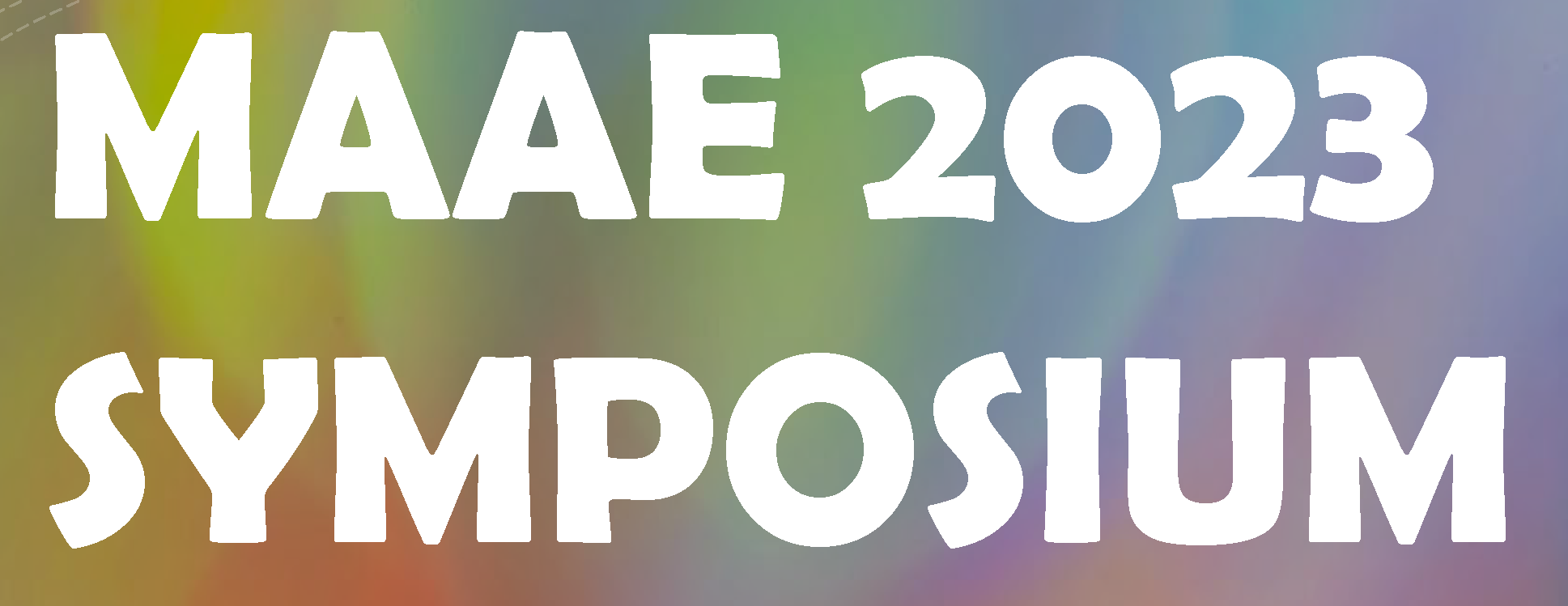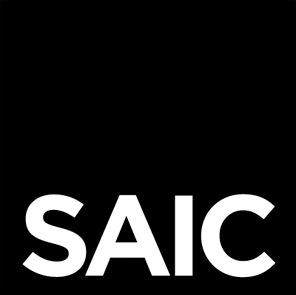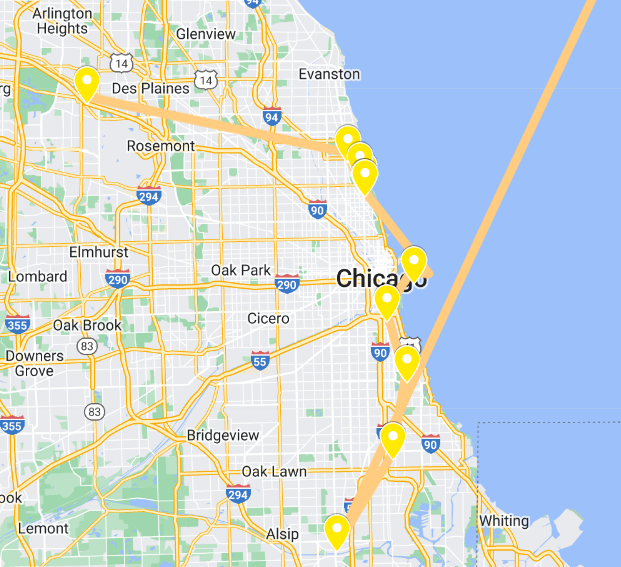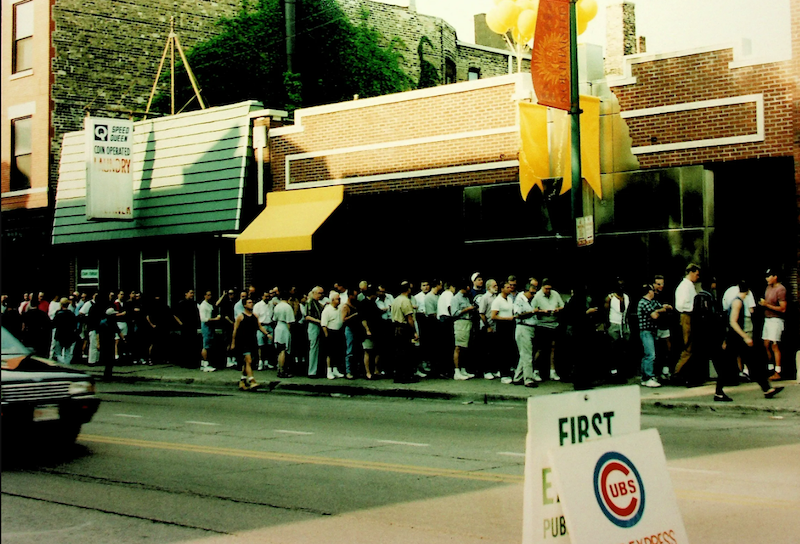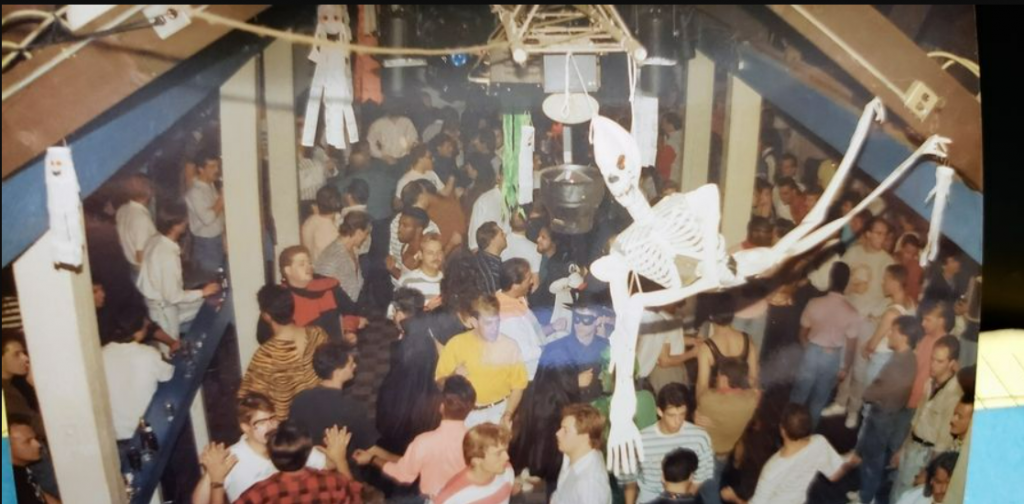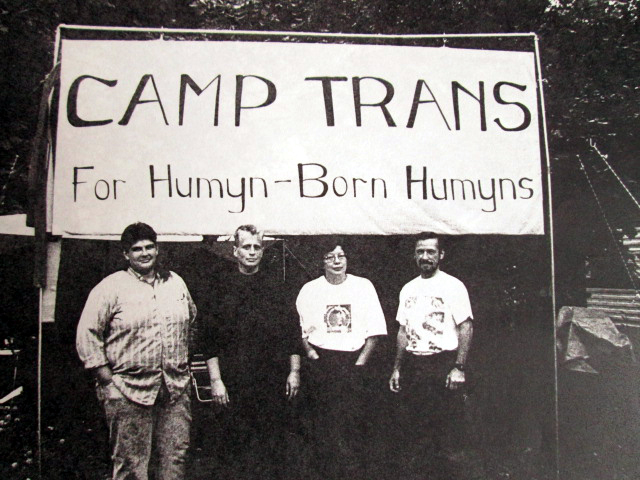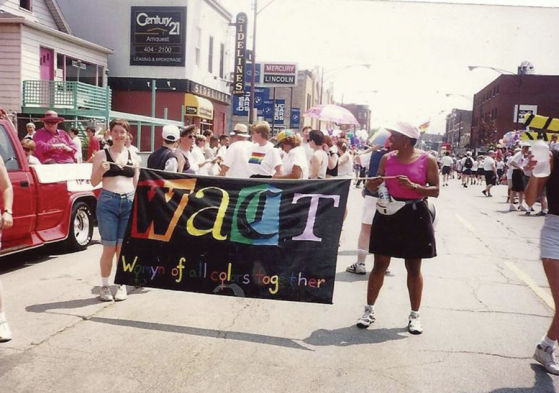Frencia Stephenson is an Arts Educator graduating from SAIC’s MAAE program in May. They are passionate about participatory artmaking and LGBTQ History. Frencia has worked / volunteered with Queering the Parks, Young Cultural Stewards, the Leather Archives and Museum, and works as an after-school art programmer in Albany Park.
Their thesis focuses on stories of QPOC and transgender elders through personal stories, culminating into the We are Everywhere Podcast, an 11 episode series. In November of 2022, an article about Frencia’s thesis work was published in the Windy City Times, Chicago’s LGBTQ newspaper.
Frencia is always looking to collaborate and work with other artists, and can be reached via email or Instagram.
We Are Everywhere: Exploring Space and Community in LGBTQ+ Chicago
This project investigates Chicago’s LGBTQ spaces and community through a podcast series that culminated from interviews with 5 QPOC and/or transgender elders. Spaces hold many memories, especially for older people, and the preservation of their knowledge is valuable and critical. The questions posed were what makes a space safe and meaningful, especially for someone with multiple marginalized identities. Participants were all over sixty years of age; three were Black, one was Latino, one was white. One participant was transgender, and all but one are affiliated with the LGBTQ+ Intergenerational Dialogue Project. Interviews were recorded and conducted in October 2022 at various locations, and ranged from thirty to ninety minutes. After transcribing the interviews, they were analyzed for themes, and scripts for the podcast were created. Common themes from the interviews were; a struggle to find community, safety, need for spaces to interact outside of bars, and a desire for both diverse, heterogenous spaces, and ones where people share a similar identity.
I conducted this project in a way that allowed my interviewees to be as involved in the process as possible. I honored their ideas from the beginning, frequently asking for their opinions. Much of their advice guided the outcome of my project. Speaking with my interviewees changed how I think about community, the formation of space, and how safety goes far beyond the physical space itself. We Are Everywhere is a declaration of the LGBTQ+ community’s presence in every nook and cranny, bar, basement, and park. We are everywhere, have been everywhere, and will continue to be everywhere, regardless of who tries to eradicate us. It also declares that oral history and memory can be a legitimate form of knowledge, and amplified with outside literature. Though the project in its iteration is over, I wish to continue interviewing QPOC and transgender elders of Chicago, hoping to add more stories to the large, interconnected web of the city’s queer history.
